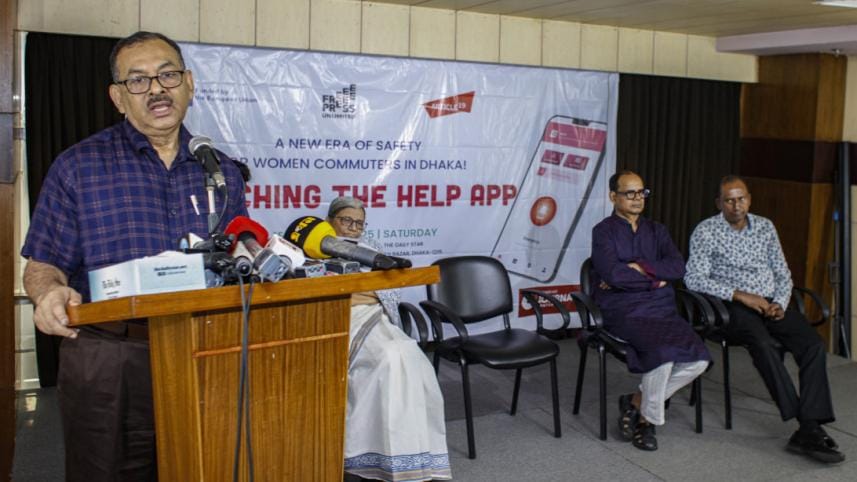Silence the word, silence the victim

Dhaka's top cop urged news outlets not to use the word "rape" because he found it too "unpleasant". Commissioner Sheikh Md Sajjat Ali yesterday suggested alternatives like "violence against women" or "repression of women", terming them "more appropriate".
It is similar to a doctor saying there is an imbalance in blood cells, when the patient has been diagnosed with leukaemia just because it would be unpleasant to say that it is indeed blood cancer. But would that help the patient?
While the DMP commissioner's intentions might have been to lessen societal discomfort and reduce public panic, it diverts attention from the real issue. If the word "rape" is unpleasant, it is because the act itself is horrifying. Substituting the word doesn't make the horrible crime any less violent or traumatic for the victim. In fact, it does the opposite. It dilutes the specificity and gravity of the offence.
Euphemisms can soften the harshness of language, but when it comes to violent crimes like rape, they downplay the severity of the act and how it affects the victim. Using terms like "non-consensual encounter" or "incident" can obscure the reality of the crime, potentially minimising public outrage or the victim's experience. It's a delicate balance. Language shapes perception and clarity is crucial for justice and awareness.
The media bears a tremendous responsibility in shaping public understanding and discourse around such grave issues. When it comes to crimes like rape, accuracy should always take precedence. Clear and precise language helps highlight the severity of the act, respect the victim's experience, and hold perpetrators accountable. Euphemisms risk trivialising the crime and may perpetuate a culture of silence or misunderstanding around these issues.
And that is exactly why these are precisely written in legal language too. Laws are designed to be unambiguous, especially in cases of sexual violence. The goal is to ensure clarity in defining the crime, establishing accountability, and protecting the rights of victims. Terms used in legal contexts are carefully chosen to reflect the severity of the act and its implications, leaving little room for misinterpretation.
So, we now must ask ourselves, is it justifiable to downplay the victim's suffering just so it does not discomfort others?
According to police data, more than 13 rapes were recorded every day between January 2023 and January 2025. These statistics show that the crime is not a recent phenomenon but rather a long-standing crisis. As such, the current media attention is likely reflecting the heightened public concern over this deeply disturbing reality.
If there is an aspect of our society that we find abhorrent, the last thing we should do is sanitise its description. The first step in solving a problem is admitting it exists. Denial, as history has shown, can lead to delusion, where the real problems fester under a façade of progress.
If we were to take the DMP chief's suggestion, where might it lead us? Would we start terming "murders" as "physical assaults" or "robberies" as "asset relocation"? What other terms could we be asked to soften, dilute, or even ignore?
While perhaps well-intentioned, the DMP commissioner's request is deeply misguided. It is not the media's responsibility to shield the public from unpleasant truths. Its role is to inform and reflect reality, however uncomfortable that may be.
Life is inherently risky and unsafe. It's hard to make people safe in a world where violence, injustice, and corruption exist. But part of living in that world is acknowledging its dangers and addressing them head-on.
The solution does not lie in avoiding words.




 For all latest news, follow The Daily Star's Google News channel.
For all latest news, follow The Daily Star's Google News channel.
Comments